This article will explore the nutritional links between niacin and alcohol, including how to use it for recovery. One of the first supplements that I took to help my body recover from years of drinking was a B-Complex containing niacin.
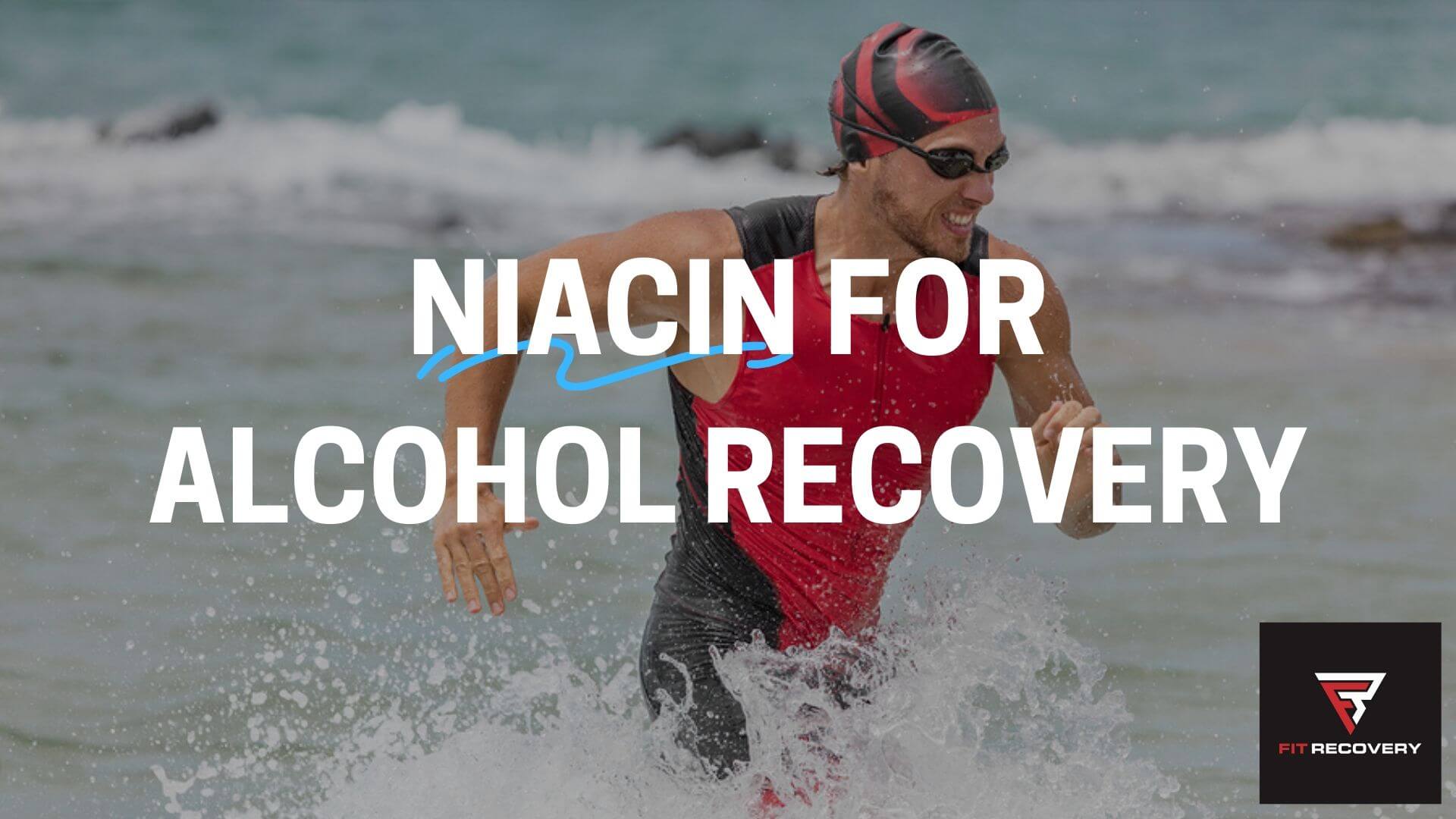
Known as Vitamin B3, niacin plays a large role in regulating metabolism and maintaining neurotransmitter balance. Chronic drinking severely depletes levels in our bodies, including reserve stores that our systems keep on hand for emergencies.
B-Vitamins are crucial for recovery because alcohol burns them up very quickly, and they are necessary for a myriad of bodily processes including healthy energy levels.
Why Do We Need Niacin?
It is an essential nutrient that is required to turn carbohydrates into energy, and which also aids in the breakdown of proteins and fats.
There are three compounds that are all commonly referred to as Vitamin B3:
- Niacin (nicotinic acid)
- Niacinamide (nicotinamide)
- Inositol hexanicotinate
Since it is the oldest known treatment for high cholesterol levels, many doctors still prescribe mega-doses of this vitamin to lower “bad” (LDL) cholesterol.
Niacinamide is sometimes referred to as “no-flush” niacin since it does not produce any facial flushing when large doses are consumed.
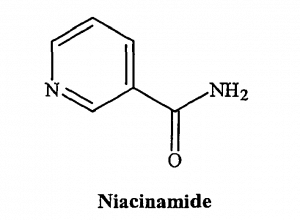
Either one can be used for the purpose of biochemical repair after quitting. We will discuss why niacinamide may actually be more useful.
In a nutshell, it’s necessary for the following mechanisms:
- Helps the body convert carbohydrates into energy
- Involved in the synthesis of neurotransmitters
- Required for tissue regeneration and DNA repair
It is necessary for the proper functioning of every major organ including the brain and the skin. Alcohol is one of the major contributors to niacin deficiency in developed countries.
Symptoms of Niacin Deficiency
Symptoms of alcohol-induced deficiency include the following:
- Fatigue
- Canker sores
- Depression
- Indigestion
- Swollen tongue
In severe cases of deficiency, a condition called pellagra may develop that can cause dementia, diarrhea, scaly skin, and eventual death if left untreated.
The most reliable way to determine whether you have a deficiency is to get your blood tested by a medical professional.
However, supplementing has been proven to be quite safe.
If you have been drinking for an extended time, it would be wise to take a supplement that contains B-vitamins.
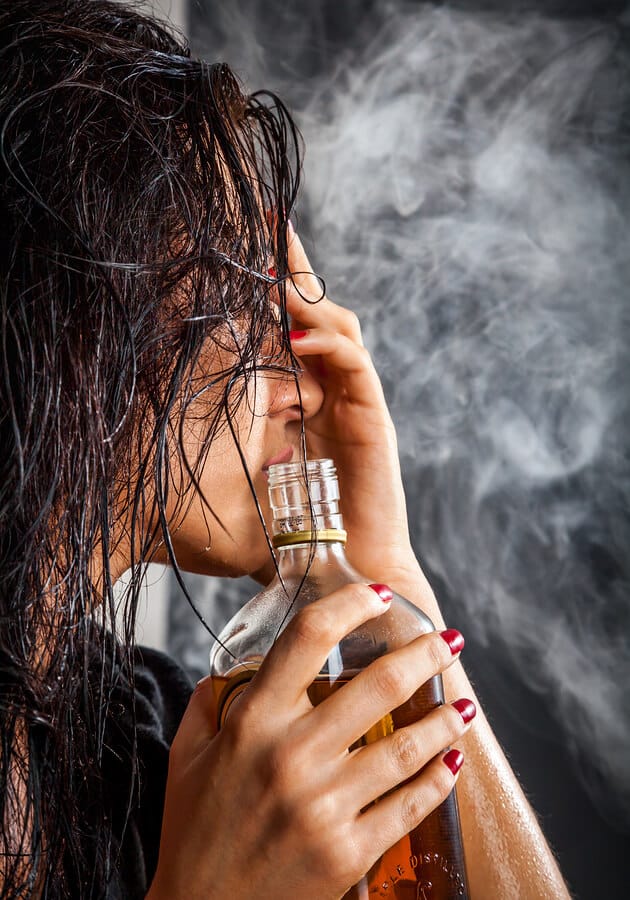
Before I quit drinking, I suffered from eczema rashes on my arms, greatly impaired focus and chronic fatigue. While other deficiencies were probably at play, these conditions went away as soon as I quit drinking and started taking a B-vitamin complex.
How Drinking Causes This Deficiency
Alcohol depletes niacin because it burns up B-vitamins in the liver, where many B-vitamins are stored.
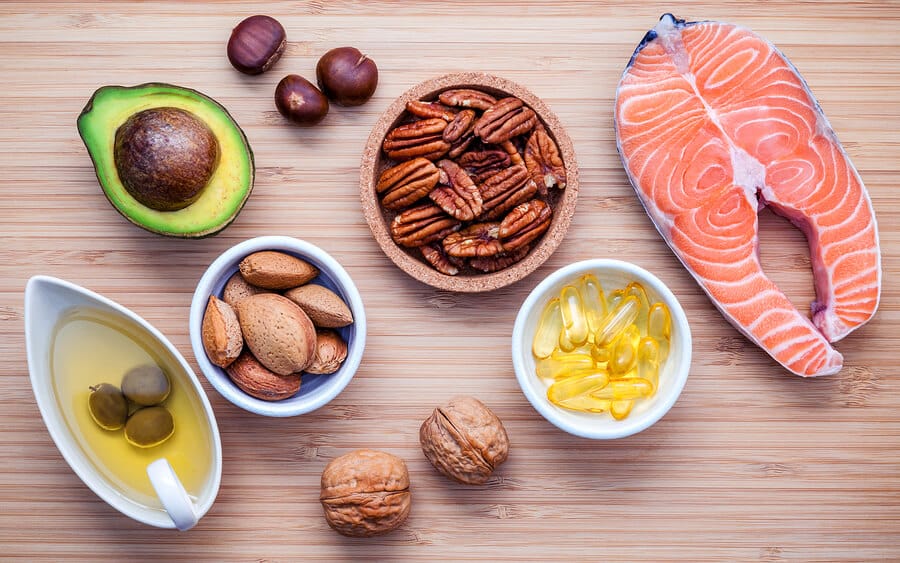
Furthermore, long-term drinking damages areas of the gut that require higher levels of this vitamin for rapid tissue regeneration.
This results in impaired digestion and an inability of the gut lining to absorb basic nutrients.
To summarize, alcoholism prevents the absorption and utilization of B-vitamins in three main ways:
- Liquid meals – Many addicts simply don’t consume enough quality foods, often obtaining more calories from alcohol than food
- Gut absorption – Liquor wreaks havoc on the gut and inhibits absorption of vitamins and minerals in the stomach and intestines
- Diuretic toxin – Since the body treats alcohol as a poison, it tends to flush niacin along with other nutrients (especially magnesium) on a cellular level
It can take weeks or months for an addict to restore gut health, even with a proper diet and nutritional supplementation.
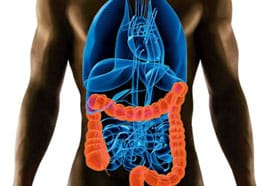
This is why, in addition to supplementing with B-vitamins, I highly recommend taking probiotics and digestive enzymes.
These will help to restore balance to your gut and increase the absorption of everything you consume. I have found high quality pancreatic enzymes at my local health food store and I drink kombucha on a regular basis.
Dosage
Dietary sources of this vitamin include poultry, red meat, grains, and nuts. Many breads and cereals are enriched with it. Most people need at least 14-16 mg per day, but this is not enough for alcoholics who need to reverse a deficiency.
Doctors sometimes prescribe up to 3 grams per day for people with high cholesterol.
If you have recently quit drinking, 100-200 mg per day is sufficient for biochemical repair.
Alcoholics who begin supplementing with B-vitamins usually begin to feel noticeably better. Depending on the severity of the drinking problem or gut damage that inhibits absorption, it may take a few weeks before feeling any positive effects from supplementation.
When I quit drinking, I used a B-complex supplement that contained 25 mg of synthetic niacin per serving. If I had to do it all over again, I would take Legion Triumph, which contains a total of 100 mg per day.
Legion Triumph is a better source of niacin than other B-complex supplements for several reasons:
- Legion Triumph contains vitamin B3 in the form of inositol hexanicotinate, which does not cause facial flushing
- Inositol hexanicotinate is easily converted into an active form of vitamin B3, meaning that it is better absorbed because it goes to work right away instead of requiring activation by enzymes
- In addition to this, Legion Triumph contains many other active vitamins, minerals, and organic herbal powders shown to aid withdrawal
Legion Triumph can be safely combined with other supplements containing B-vitamins. However, if your goal is primarily to feel calmer while quitting drinking, I recommend looking into an awesome supplement called Calm Support.
Always consult with your doctor before beginning new supplements or lifestyle changes.
Interactions
Combining large doses of this vitamin with heavy drinking can be problematic for two reasons:
- Mega-doses(1 gram or more) are both blood thinners
- Mega-doses(1 gram or more) of both can cause liver problems
People who consume large amounts of both simultaneously can experience facial flushing, itchy skin, dizziness, and nausea. (source)
If you plan to take a mega-dose before quitting drinking, it’s best to get your liver enzymes checked periodically and to proceed only under the care of a doctor.
Large doses may be unsuitable for people with alcoholic cirrhosis.
However, I have not been able to find a single case of death caused by niacin supplementation alone. Alcohol is by far the leading cause of liver damage.
Many people have successfully used this vitamin for depression and to reduce cravings after quitting drinking. Others have reported that consuming both at the same time reduced their cravings and thereby helped them wean off of drinking.
Scientific Research

Research shows that niacin is effective for biochemical restoration, may reduce cravings, and has a favorable safety profile:
- A 2014 review of research and case studies concluded that this supplementation can improve psychological and physical recovery from addiction (source)
- A 2014 study showed that this supplementation helped reverse alcoholic fatty liver disease (source)
- A study on rats showed that a group given high doses consumed 36% less alcohol than rats given normal levels of this vitamin (source)
- A scientific review of the safety of niacinamide concluded that it is safe at doses of less than 3 grams per day (source)
As an interesting aside, consider the following passage about AA Founder Bill Wilson’s experience:
“Even as AA slowly grew, many of Bill’s financial and personal problems endured, most notably depression. I met Bill in New York in 1960. I introduced him to the concept of megavitamin therapy. Bill was very curious about it and began to take Niacin, 3000mg daily. Within a few weeks the fatigue and depression that had plagued him for years were gone. He gave it to 30 of his close friends in AA. Of the 30, 10 were free of anxiety, tension and depression in one month. Another 10 were well in two months. Bill then wrote “The Vitamin B3 Therapy,” and thousands of copies of this extraordinary pamphlet were distributed. As a result, Bill became unpopular with the members of the board of AA International. The medical members, who had been appointed by Bill, “knew” vitamin B3 could not be as therapeutic as Bill had found it to be. I found it very useful in treating patients who were both alcoholic and depressed.” -Dr. Abram Hoffer (source)
Conclusion
If you’ve found this article helpful, be sure to check out my other article on vitamins for alcohol withdrawal. In that article and others like it, I’m not arguing that you need to take every remedy I discuss.
With nutritional repair and natural remedies, trial and error is the best approach. I’ve never had a bad reaction to vitamins or natural supplements. Some have simply worked much better than others. The best ones have worked so well that they’ve seriously changed my life.
Despite the plethora of pharmaceutical options for addiction, scientists have long understood the necessity of using vitamins for biochemical restoration. This is a subject that I discuss at length in my eBook, Drinking Sucks!
Many alcoholics in hospitals are given IV injections of thiamine (vitamin B1) to prevent brain damage. You can read my article on how to use thiamine for withdrawal here.
Basic (and high quality!) supplements are much safer than prescription drugs that mask the symptoms of underlying nutrient deficiencies. Untreated deficiencies can cause serious complications down the road.
If you have any questions, please post them in the comment box below.

FAQ:
What vitamins do you need when you quit drinking?
Alcohol is a diuretic and a toxin that contributes to deficiencies in nutrients, hormones, and neurotransmitters. People who quit drinking should consider natural supplementation with vitamins, minerals, amino acids, and fatty acids to heal the body and brain after quitting.
Can you mix these?
Mixing drinks with megadoses of this vitamin can increase the side effects, which can include nausea, itching, dizziness, and facial flush. Standard doses, such as those contained in multivitamins, are usually tolerated well by drinkers or people trying to quit.
What do you do when you crave alcohol?
If you’re addicted and at risk of severe withdrawal, talk to your doctor about medications that can help you quit safely. If you have mild or moderate dependence, or if you’ve already quit drinking, look into L-Glutamine to reduce alcohol cravings. Psychological cravings are best controlled by refocusing the mind on other things, building healthy new routines, and reassessing old belief systems that entrench the drinking habit.
Authors
-
Chris Scott founded Fit Recovery in 2014 to help people from around the world dominate alcohol dependence and rebuild their lives from scratch. A former investment banker, he recovered from alcohol dependence using cutting-edge methods that integrate nutrition, physiology, and behavioral change. Today, Chris is an Alcohol Recovery Coach and the creator of an online course called Total Alcohol Recovery 2.0.
View all posts -
Dr. Rebeca Eriksen is the Nutritional Consultant for Fit Recovery. She has a PhD in Nutritional Genetics from Imperial College London, and over ten years of clinical experience designing custom nutritional repair regimens for patients recovering from alcohol addiction. In addition to her work at the exclusive Executive Health clinic in Marbella, Spain, she helps to keep Fit Recovery up to date with emerging research.
View all posts



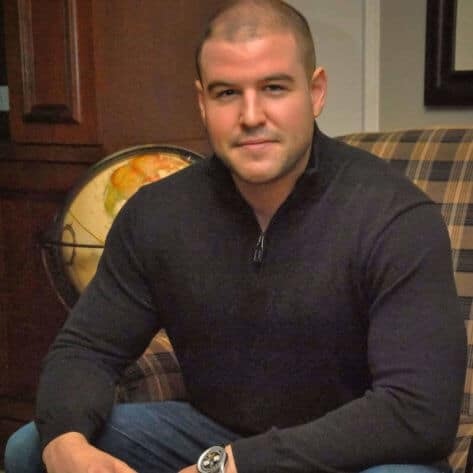





This article resonated with me as I’ve been incorporating a B-complex supplement, including niacin, into my daily routine. It’s been instrumental in supporting my overall well-being, especially during my recovery from alcohol consumption. I’ve noticed improved energy levels and a sense of vitality since starting this supplement regimen.
It’s NOT Niacin that is the one to take, it is NIACINAMIDE (AKA Nicotinamide). A totally different action in the body than Niacin.
Eat a some food (so it absorbs), and with a full glass of water take Niacinamide. Taking Vit. C with it also helps absoption.
Also… unless Vitamin C is taken with ANY B-vitamin…. the body absords VERY little of it.
Research what you write before expousing false benefits on something (Niacin) that could do more harm than good when mixed with alcohol.
I have beginning stages cirrhosis of the liver I’ve been trying to quit alcohol for a while with little success Because of the lethargy and depression however I did my research this time about vitamins and weaning off have only a few days clean (I have to quit for good )but when I take the niacin after the flush I have energy and am less depressed feel better overal however my liver spasms and I get the hiccups at 500 mg should I stop and wait till my doctor tells me it’s OK ?but for now it seems to be… Read more »
How are you now? I think you should not take so much unless your Dr says ok.
typo – that’s Black Cumin Seed Oil (cold-pressed)
Take Niacinamide NOT Niacin. Two different vitamin consrtucts. 500mg of Niacinamide with food, Vit. C and a full glass of water before alcohol.
Black Cunin Seed Oil has had SO MUCH positive PROVEN research of how it helps the body, especially the liver, that now phamaceutical companies are working to come up with a more potent pill….. but the oil itself is AMAZING for the liver (and body).
Also… N-Acetylcysteine (a natural amino-acid). THE best PROVEN antioxidant and liver and kidney helper out there. Look it all up on the NIH website (National Institutes of Health).